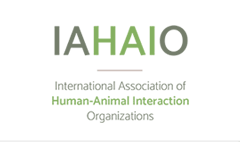Abstract
Ethical practice of animal- assisted interventions (AAI) requires appropriate qualifications and experience for all parties involved. Recently introduced and updated Standards of Practice emphasize the importance of AAI- specific training and qualification for different types of AAI, which should only be delivered within the scope of one’s professional competence. The purpose of this study was (1) to explore how a self- selected group of practitioners delivering AAI describe their work in relation to recent attempts to develop a terminological consensus (IAHAIO, 2014, 2018), and (2) to describe how AAI best practice recommendations (AAII, 2018) are implemented into professional practice among these AAI professionals working with dogs. The study employed an online survey that identified the participants’ qualification level, AAI specific training background, level of AAI experience, and their compliance with recommended guidelines on the documentation and measurement of clients’ progress. Data was collected from an international sample of 239 AAI professionals. A high proportion of respondents who were practitioners in a given field reported holding the necessary basic academic qualification for delivering animal- assisted education (AAE) (82.1%) or animal- assisted therapy (AAT) (91.4%). A substantial proportion delivered specific types of AAI that were beyond their scope of professional practice. A large proportion of respondent practitioners reported that they do not document (27.5%) or measure (28.5%) their clients’ progress as recommended by the professional standards. Experience in AAI was not a significant predictor of compliance with the recommended guidelines on documentation and measurement of clients’ progress; however, professional experience was related to their AAI experience. It is suggested that limitations in the provision of AAI- specific training and awareness of recently updated best practice recommendations influence the quality of AAI across practitioners. Overcoming these issues is essential to further professionalize AAI practice and enhance the quality of intervention programs.
Recommended Citation
Kerulo, Greta; Kargas, Niko; Mills, Daniel S.; Law, Graham; VanFleet, Rise; Faa-Thompson, Tracie; and Winkle, Melissa Y.
(2020)
"Animal-Assisted Interventions: Relationship Between Standards and Qualifications,"
People and Animals: The International Journal of Research and Practice: Vol. 3
:
Iss.
1,
Article 4.
Available at:
https://docs.lib.purdue.edu/paij/vol3/iss1/4
Included in
Animal Studies Commons, Child Psychology Commons, Counseling Psychology Commons, Social Work Commons, Teacher Education and Professional Development Commons


